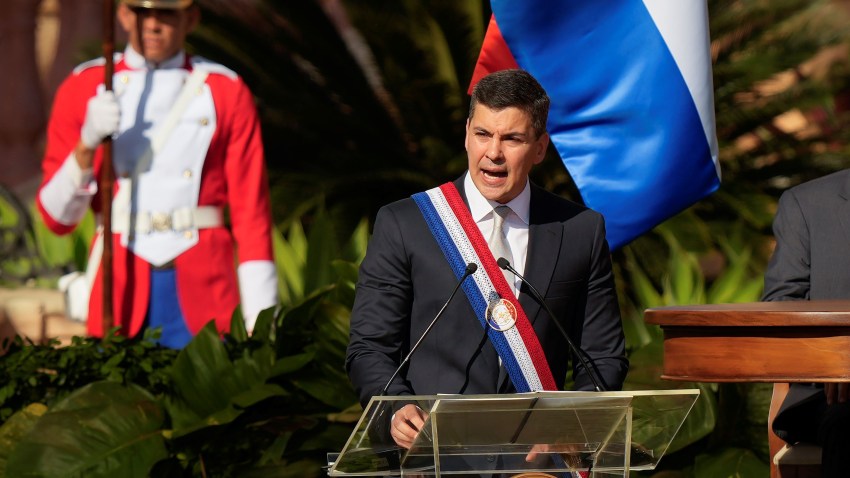In mid-February, six months after assuming office, Paraguayan President Santiago Pena took a lightning trip to Buenos Aires to meet with his recently inaugurated counterpart, Argentine President Javier Milei. While Pena pitched Milei on a binational bridge project and other integration efforts, back in Paraguay’s riverside capital of Asuncion, lawmakers from Pena’s party voted to expel Sen. Kattya Gonzalez, a leading opposition figure and anti-corruption voice, from the Senate without significant cause.
The day symbolized Paraguay’s conundrum: As Pena seeks to showcase the country’s potential on the global stage, its democratic institutions remain mired in local networks of patronage and corruption.
At the center of those networks is the Colorado Party, a political force that has lost the presidency just once in the 35 years since Paraguay emerged from its 35-year dictatorship under Alfredo Stroessner. Pena, however, is not a traditional Colorado Party politician. Rather, he is a young technocrat marketing Paraguay as a burgeoning destination for foreign investment, with the aim of decreasing its dependence on agriculture, primarily soy and beef exports. His ambition is backed by the country’s macroeconomic stability, its location nestled between the continent’s largest economies and its wealth of fertile land, powerful rivers and clean energy.

